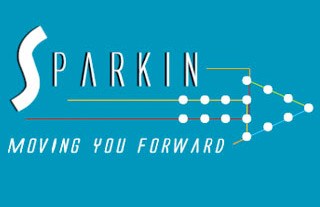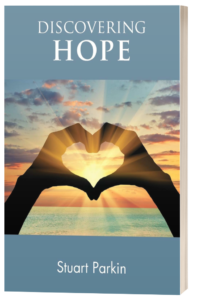Freelancing – Almost Fall, 2020
As we gallop toward the final third of 2020, there are more job opportunities for strategy planners but increasingly the work is freelance/flexi’/permalance. Where full time hiring is happening it’s more in healthcare, packaged goods, technology and online entertainment.
If you’ve lost your job, is immediately jumping in to freelance the right next step for you?
Freelance – Yes if:
Money – You need money to keep rolling in.
Sanity – You need to keep your mind engaged
Assessment – Because it provides the best way to assess your fit as part of a new potential full time employer.
Variety – You like a variety of work
Connections – You want to broaden industry exposure.
Flexibility – You want to work selectively.
Freelance – No if:
Security – Freelance work is by definition temporary and when an agency needs to cut back, freelancers lose out first.
Constant Hustle – Temporary work requires constant focus on ‘next.’
Loneliness – Freelance work is often in isolation.
Team Involvement – As a freelancer you don’t have the same level of team engagement.
Career Paralysis – Freelance can be a diversion from time needed to reflect or retool.
What To do Next ? – If you need cash you will default to freelance. If cash is not critical, take the time to reflect and evaluate how you want to grow/what you wish to experience next/whether your development best comes from paid work or non-vocational education. Happy to discuss with you.
Talk soon,Stuart
A few links of newsletters that your peers have enjoyed:
Career Adaptability – bit.ly/2QQGzLp
Impostor Syndrome – bit.ly/3k6P1D2
- A comprehensive guide to starting your freelance career
- Freelance v Permanent. What’s better for your career?
- Five things it pays to consider before going freelance.
- How to overcome the most common challengers as a freelancer.
- Nine work challenges only freelancers will understand.
- Pros and cons of working as a freelancer
- The ulimate guide to getting paid as a freelancer
Be Passionate Or Don’t Interview
Job interview manual tip, page 1, section 1, point 1 – ‘Show the love!’ If the would be employer does not feel your enthusiasm, even if you are brilliant, you’re probably not getting the job. Be passionate and if you can’t, pursue something else.
Job Market Update 07/30/20
Jobs market for strategists – How are things tracking?
The opportunities for paid work have picked up in the last month but the focus now and through the remainder of 2020 will emphasize, freelance/flexi/’permalance’. Why? Because clients, uncertain about consistency of consumer expenditure will not want to lock themselves in to extra marketing and in turn, so agencies similarly will not want to be locking in cash, least of all on full time hiring. There are of course exceptions. Where full time hiring is really happening is with agencies that in ‘normal’ market conditions, might relatively struggle to attract top industry talent. For those that really want to freelance, after many job cuts in this marketplace, expect plenty of competition, as a huge surplus your strategy peers are also now looking for freelance.
Flexi/Freelance Working Opportunity – Should I Consider It? Yes if:
Money – You need to keep the money rolling in and it can be lucrative.
Sanity – You need to keep your mind engaged whilst waiting for full time.
Availability – Because there is no full time!
Assessment – Because it provides a much better way to assess your fit as part of a new team/with a new client. You have the chance to ‘trial,’ as does the agency.
Variety – Allows you to have a better variety of work.
Skills Focus – You can focus on using the expertise you prefer to focus on.
Connections – Allows you greater industry exposure.
Career Direction? – If you’re unsure about what’s next for your career, freelance gives you time to re-evaluate.
Flexibility – Freelance allows you to work when you want.
Flexi/Freelance Working Opportunity – Should I Consider?
Flexi/Freelance Working Opportunity – Should I Consider It? No if:
Lack of security – Freelance unlike full time, is temporary work. When an agency needs to cut back, the freelancers tend to lose out first.
Constant hustle – As freelance is temporary, you need to constantly be pursuing next.
Loneliness – You are very often not part of a team and working in isolation.
Lack of Structure – You are in business for yourself. This is good but you have to create the structure of your day.
Dealing with Admin’ – If you work for yourself, you’ll have plenty of non-strategy things that need to get done.
Team Involvement – You don’t usually have the same level of information or involvement with the team.
Project Completion – Project work invariably means you work on discrete parts of a campaign or brand building exercise which you may not see through to completion.
Career Paralysis – Freelance can be a detour from a time needed to reflect or retool.
Freelance – What Are My Next Steps?
Instead of being the end of the world, the loss of a job can be a good thing, the need for money aside, it really does depend on how you ‘want’ to see things. As a crisis or as an opportunity. For certain, some form of new beginning but, what should your focus be if when you are laid off?
1.If you desperately need to work, (to keep cashflow or sanity) then take any freelance role where you know your skills are needed.
2. If you’re not desperate for work – Use the time you now have to reflect and assess what would be an optimal next career step; Which skills you would like to develop and which experiences do you want to have next. Clarify whether this comes from non-vocational training or from specific freelance or full-time roles.
3. Smile – Know that the job you’ve been paid to do, understanding consumer behavior, is a dream scenario for many. So, from time-to-time, why not now, remind yourself what you get paid to do for a living. Really think about it. Then, smile. I promise, you, you will feel energized.
For more on the subject of Freelance working, sign up for our ‘Free’ newsletter, which goes to thousands of your strategic problem-solving peers. The next edition is out 8/3 and focused on freelance working.
Staying Positive Increases Your Chances of Getting Hired
Just spoke with a strategist who lost their job and with it their confidence, but how they reacted was smart.
After reflecting, first they concluded that the world and ‘their’ world, would not end. They decided they wouldn’t let it!
They decided after allowing themselves to be shaken for 24 hours to return to the front foot.
They then then posted on social media. Their post focused on gratitude to all that had given them the opportunity both in the agency and all that had helped their development. They highlighted the fact that they had so much to learn. (Gratitude and humility can go a long way, as can other’s awareness of our availavility to work.)
Within a day they had received some positive responses and within a week they had a job offer.
#proactiveapproach #neversaydie #strategicplanning
To Get the Job You Hoped For – Ask incisive questions at the interview
A salutary lesson for any job seekers but particularly for strategists, trained to ask the right questions for their clients and then not doing so for themselves when interviewing for a new job.
“Unfortunately, the role wasn’t what I was sold – I started there on the promise of delivering strategic work, but the other personnel and the agency leadership were only focused on delivering comm’s or worse, ad campaigns masquerading as strategic innovation! I left within three months of arriving. It was a hard lesson in really being on the same page as others in terms of what you want to achieve.”
Moral of story – To obtain a better first-hand understanding of the opportunity you’re being considered for, ask better questions, such as:
How does the agency make the bulk of its money? (tells you what the actual business focus is)
Key People in the agency – What are their primary skillsets? (tells you what skill-sets are really valued)
Awarded Work – What is the agency known for/Where is it being recognized and how?
What is the publicly articulated vision for the agency?
Your Success is defined as what? Be crystal clear what the people about to hire you believe makes you a success in your role. This will confirm whether your and their thinking aligns.
#CareerSuccess#Clarity#Questions

Working Practice Post COVID
Working from home or not? There are clear advantages to both and these advantages vary by person and employer.
For over a decade I’ve been asked by strategists for opportunities where virtual working or perhaps a flexi week with one or two days working from home. There has been some accommodation by agencies but typically, staff have been expected to be on-site. The main justification, cultural cohesion and a justification that creative and business effectiveness it is believed derives best from in-person collaboration.
Needs Must
The single most compelling factor that changes the post COVID work dynamic, is knowledge gained by the team leader of their team working virtually. The planning lead now knows (or should) who can perform effectively working from home and who can’t.
Is This A Game Changer?
If you lead a team, your primary worry, is the effective performance of that team. Prior to COVID the team leader focused on results, would err on the side of caution but now the same leader can use virtual working to reward those of the team that can clearly function from home.
Does This Mean Most Of Us Will Be Working Virtually?
No. While I’ve heard there are clear ‘working from home’ benefits, (for example, a few team leaders have said that video calls have made group meetings much more inclusive than past physical formats) there are several reasons why most of us will still be working on-site.
i) Those that can’t work well from home – Some don’t perform well working in isolation; Some have domestic circumstances that make working from home difficult.
ii) Those that don’t want to work from home – ‘69% percent of workers missed face to face work collaboration.’ (Digiday, 6/2020). 20 to 30 year old’s that have moved to the big city, don’t want to spend their lives locked in their studios; Others want to escape the space of their apartments to be sane/thrive on social interaction.
iii) Those that shouldn’t work from home – In the absence of formal training which has disappeared from much of agency life, the concept of learning ‘on the job’ requires physical proximity to most effectively learn.
iv) Control – Many team leaders will continue to justify for reasons including cultural cohesion and creative optimization, that their team should be physically present more than not.
How Does The Future Look?
Most businesses will develop more agile operating models. Smart places of work will reward more of their employees with greater flexibility to work from home, a day or two a week. Where companies require everyone in office or everyone out of office, such decisions are not typically about what’s best for people instead they’re about what’s best for profits. Smart places will seek to optimize the benefits of technology and to enhance working culture by a balanced approach to flexi working. Perhaps flexi working will increase by 20% in year post COVID.
What Can You Do To Prepare For Cost Covid?
1. Reflect and Assess – This is a great time to assess what you miss and what you don’t, what you can tolerate and can’t and where and how you truly want to spend your time.
2. Prove Yourself – If you want the option (as an employee) post COVID to work virtually, prove you can be effective from home. If you haven’t functioned well to date, actively work on ways to understand your relative lack of productivity and pivot.
For more background/links on virtual working – https://bit.ly/2CVbGRT
For more articles on stress management, job security etc – https://bit.ly/2NKLQC0







